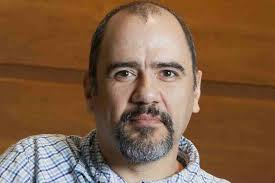One the biggest headaches for GPs and practice managers is the appointment system. This is essentially the way that GPs try to match the supply of appointments with doctors, nurses, phlebotomists and assorted other health professionals with the demands of their registered patients. No single appointment system can ultimately be fair to everyone.
Most surgeries would be able to tell you what sort of supply is needed to comfortably meet the demand and needs of their patients on any given day. And if the GPs can’t tell you, then the receptionists certainly can tell you when the pressure is on and there are no appointments to offer.
One way to give the illusion that the balance between ‘book on the day’ and pre-bookable appointments is right is to change your system regularly, to keep your patients guessing. As soon as you appear to be getting too many emergency patients, or complaints about access, it’s time to consult the PPG and tweak the system, so no-one is really sure what’s going on and a temporary illusion of sufficient healthcare supply is created. This leaves everyone feeling better, apart from the frustrated patients.
If a practice has honed their appointment system using some form of triage, that’s all going to be wrecked
There are three main ways to control who gets appointments at a GP surgery. Firstly, you can educate your patients to know what an emergency is and simply rely on a ’system’ of first come, first served. Those who turn up at the surgery or who can time their phone calls as the lines open do particularly well with this system. It’s not exactly fair and can lead to a number of unnecessary appointments.
The second method is to triage the appointments using non-clinical staff, training them to differentiate the needs of patients calling in or calling the surgery and allocating them the most appropriate type of appointment. This requires training and can weed out some unnecessary appointments.
Lastly, and the current trend, is to use clinicians to triage appointments, either by telephone or digitally. Using clinicians to decide whether a request can just be dealt with requires a phone call or a face-to-face appointment and is time-consuming, but can manage demand. It may give patients the illusion that they are dealing with a call centre.
If a practice has finely honed their appointment system using some form of triage, that is now all going to be wrecked. This is because at least 25% of appointments need to be available online for patients to book directly, bypassing any triage. The only way around this is to make the available appointments triage slots. For practices who use non-clinician triage, patients will essentially be booking a call back from a receptionist to book them an appointment.
Makes me wonder if NHS Employers and GPC negotiators actually understand how GP surgeries operate.
Dr Samir Dawlatly is a GP partner in Birmingham
Pulse October survey
Take our July 2025 survey to potentially win £1.000 worth of tokens














